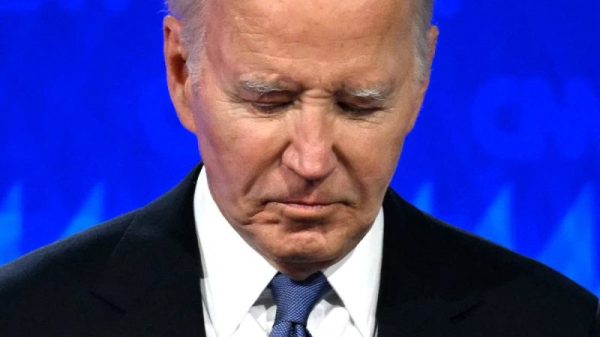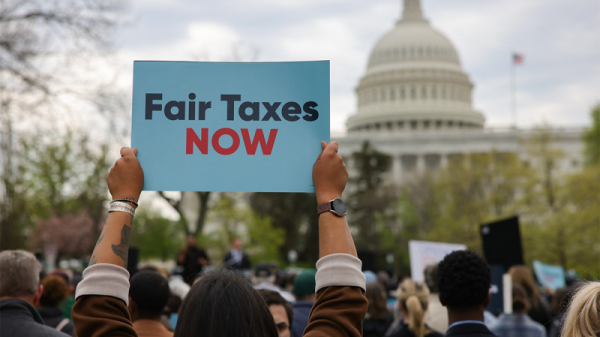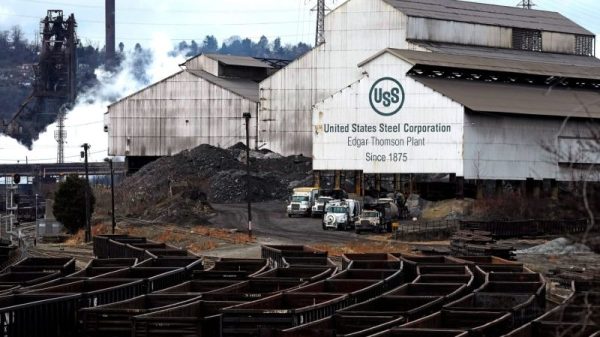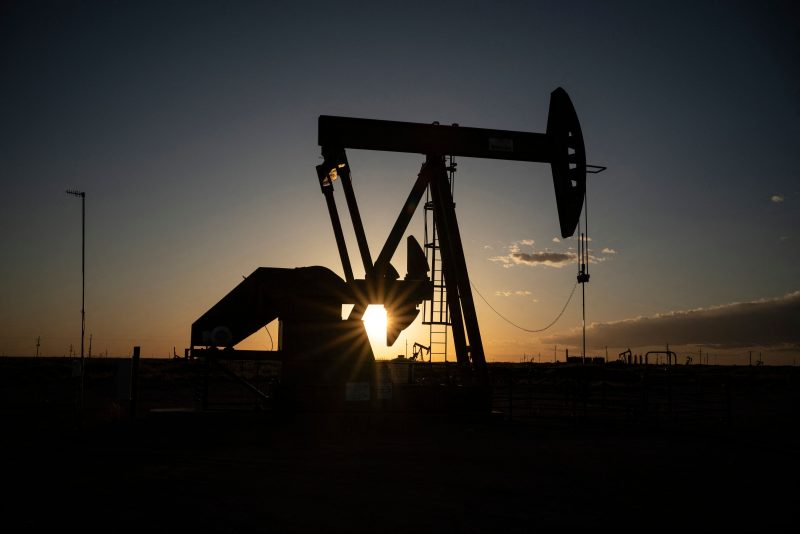To hear President Biden’s critics tell it, the United States is sitting on a huge, untapped reservoir of oil that the president, out of obsequiousness to left-wing environmental activists — or maybe just anti-American petulance — refuses to pull out of the ground. If we simply let oil drillers drill, the argument goes, we could drive down gas prices and again serve as the world’s gas station, selling our excess to other countries the way we did when Donald Trump was president.
We heard rhetoric like this during the third Republican presidential primary debate, held in Miami on Wednesday evening. But it would have taken about five seconds of research to see that the arguments are wrong — that the United States is pumping more oil now and exporting more oil than it did during Donald Trump’s administration.
This is simple to demonstrate. The Energy Information Administration, part of the Energy Department, tracks oil production and trade over time. If you pull up its monthly production figures, you can see that, after a dip during the pandemic, production has recovered. In August, the most recent month for which we have data, the United States produced more than 404 million barrels of oil, topping the 402 million barrels pumped in December 2019.
Since the end of January 2021, the United States has produced 11.2 billion barrels of crude oil. From the end of January 2017 to August 2019, the U.S. produced 10.1 billion barrels, 1.1 billion fewer.
This isn’t all because of Biden any more than production in 2017 and 2018 was because of Trump. There are a lot of factors at play that affect production. But if your argument is that oil production is being hobbled by Biden, it’s hard to reconcile with the actual data.
Trump also likes to tout that the United States became “energy independent” while he was president, saying on the campaign trail that, if reelected in 2024, he will get America back to that state.
But America was never “energy independent” in the way Trump suggests. Instead, while he was president, the United States began exporting more crude oil and petroleum products than we imported. That has largely continued under Biden. In fact, we now export far more crude oil and petroleum products than we did when Trump was president.
Those “petroleum products” are important. They include things like gasoline and home heating oil, things made from crude oil or other fossil fuels. If we take petroleum products out of the equation, the United States still imports more crude oil than it exports, though that’s in part because it processes crude oil into products that are then exported.
During Wednesday’s debate, Sen. Tim Scott (R-S.C.) argued that he would help combat high prices by increasing oil production. Moderator Lester Holt noted that there wasn’t a link between more production and lower gas prices, with which Scott disagreed.
But Holt is right. There’s no strong correlation between increases in domestic production and the national average price of a gallon of gas. There’s not even a correlation between the rate of change in production and gas prices.
If we plotted gas prices against production and they moved in sync, you’d have points that formed a diagonal line. When we plot actual prices and production, though, we get movement all over the place. They aren’t connected.
Instead, gas prices are tied to the international market, of which U.S. oil makes up only a part. If the United States were truly energy-independent, that situation might be different.
Again, none of this should be attributed fully to Biden. Energy markets are broadly unaffected by the actions of the president. It is true, though, that things like the cancellation of the Keystone XL pipeline (which wouldn’t have carried standard crude oil) have not impeded American crude-oil production.
But claiming that Biden is inhibiting production, particularly to kowtow to environmentalists, carries more political punch. So that’s the rhetoric that’s offered.

































